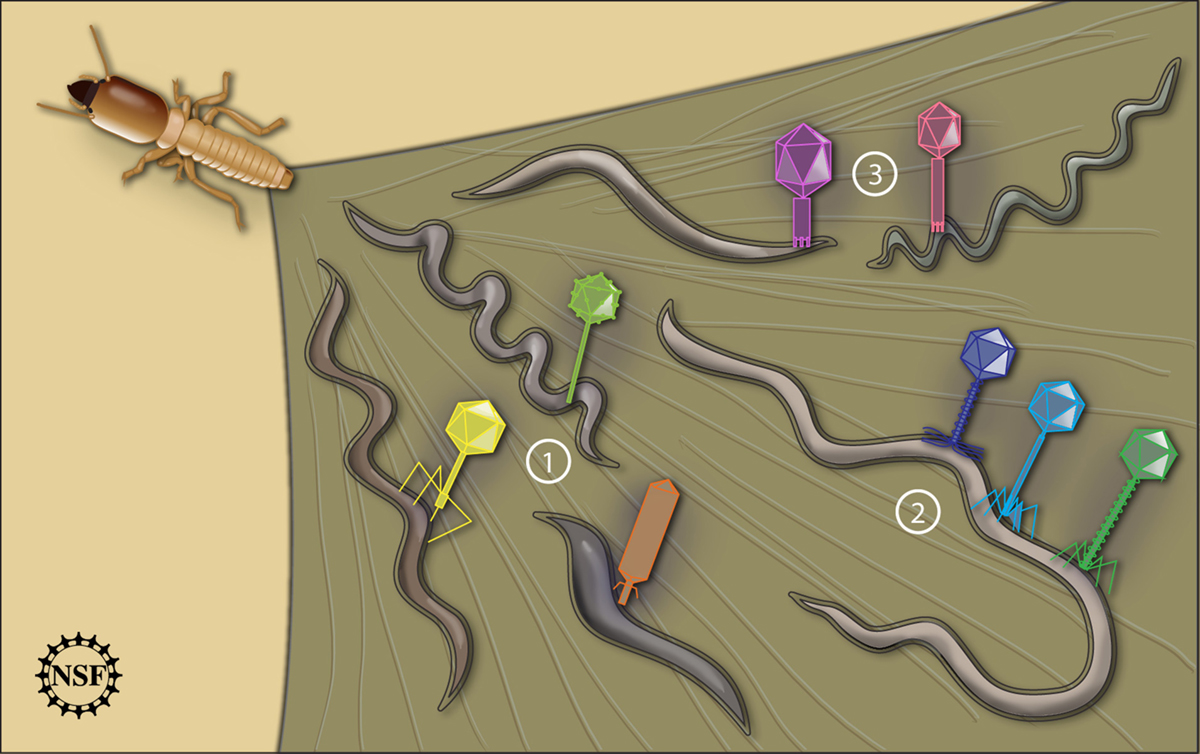
Difference between Bacterial and Viral InfectionsThe most obvious difference between bacterial and viral infection is that bacterial infections are caused by bacteria whilst viral infections occur due to viruses. Some of bacterial infections are strep throat, tuberculosis and urinary tract infections. Viruses cause chickenpox, AIDS and common cold. Some medical conditions like pneumonia, meningitis and diarrhea can be caused by either pathogen.
Bacteria are tiny, unicellular organisms but still huge in comparison to viruses. Viruses cannot survive and multiply without living hosts while bacteria can grow on non-living surfaces and in extremely hot or cold environments. All viruses are harmful to human health whilst some strains of bacteria perform useful functions in human body, such as gut flora. Another big difference between bacteria and viruses is that infectious diseases caused by bacteria can be treated with antibiotics. Due to widespread use of antibiotics in treatment of bacterial infections, certain strains of bacteria have become resistant to antibiotics. On the other hand, antibiotics cannot cure viral diseases. Diseases caused by viruses are treated with medications to relieve symptoms but no medicine can kill a virus.
Bacteria
A bacterium is a microorganism consisting of a single cell. Bacteria can grow and multiply independently and may thrive in almost any environment. They do not require host for reproduction, but they reproduce asexually meaning they can simply divide into two cells. Only some strains of bacteria can produce illness in human body while most are harmless and some are actually beneficial to human health. Bacterial infection commonly occurs due to pathogenic bacteria infestation of digestive or respiratory system. If the immune system of an infected person is not strong enough to fight off bacteria, the treatment with antibiotics is needed. The most popular antibiotic is penicillin, given to treat the common bacterial infections.
Virus
A virus is not a cell and does not have cellular parts but consists of genetic material (RNA and DNA) surrounded by a protein coat. Because of this they are considered as non-living things. Viruses are considered parasites since they require living cells to multiply and reproduce. They can remain dormant for many years until they find a host. When a virus enters a host, it alters genetic codes of a host’s cells from its normal function to produce copies of the virus. This results in an illness in the host. A viral infection can be treated with an antivirus.
However, an antivirus at the same time affects body’s natural defense mechanism. Therefore, prevention is the best way to deal with viral infections. Preventive vaccine against a viral infection is a serum consisting of weakened strain of the virus that is injected into the body. This way, the body’s immune system is stimulated to produce antibodies against the virus. Then if the virus enters a vaccinated person, antibodies kill the virus, thus infection is prevented.

















Your thoughts on this
Loading...